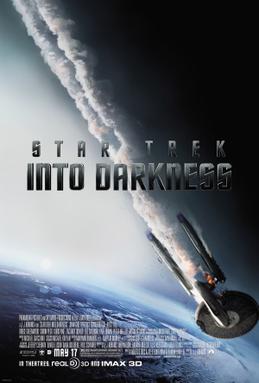| Sigourney Weaver in Avatar |
Neytiri: Zoe Saldana
Dr. Grace Augustine: Sigourney Weaver
Col. Miles Quaritch: Stephen Lang
Trudy Chacón: Michelle Rodriguez
Parker Selfridge: Giovanni Ribisi
Norm Spellman: Joel David Moore
Moat: CCH Pounder
Eytukan: Wes Studi
Dr. Max Patel: Dileep Rao
Director: James Cameron
Screenplay: James Cameron
Cinematography: Mauro Fiore
Production design: Rick Carter, Martin Stromberg
Film editing: James Cameron, John Refoua, Stephen E. Rivkin
Music: James Horner
When it first appeared, James Cameron's Avatar was as much an event as a movie. People flocked to see its groundbreaking 3D and motion-capture CGI effects and to marvel at its colorful creation of a distant world. Even most of the critics raved, caught off-guard yet again by Cameron's expensive audacity, as they had been with Titanic in 1997. But as with Titanic, the passing of time has taken some of the glamour off of the film. Cameron had certainly excelled his contemporaries as a technological innovator, but 3D is beginning to become passé (as it did in its first insurgence in the 1950s) and motion-capture has become a standard technique. So it's possible to concentrate on Avatar as movie, and thus to find it wanting. For one thing, it's shamelessly derivative. The central plot, of a soldier "going native," is that of Kevin Costner's Dances With Wolves (1990). The Na'vi belief in the mystical unity of all things is identical to the Force from the Star Wars movies. And the gung-ho Marines and villainous representatives of the military-industrial complex are borrowed by Cameron from his own Aliens (1986). Even the Na'vi, with their elongated torsos, big eyes, flat noses, and long round tails, remind me oddly of the Pink Panther. Except blue. The characters are stock: Sigourney Weaver is again playing the tough, adversary whom the exploitative bad guys underestimate. Sam Worthington's Jake Sully is the white man savior of the native peoples. And Stephen Lang's bull-headed Col. Quaritch is the hissable villain with no apparent redeeming qualities. Cameron even calls the material being sought by the earthlings in the movie "unobtanium," a variant spelling of the impossible substance that has been called "unobtainium" by engineers since the 1950s. The Marvel Studios screenwriters at least have the wit to call their minerals "adamantium" and "vibranium." But maybe that's quibbling: Avatar remains an influential and extremely watchable movie, even if it's predictable and overlong -- cuts of the film range from 162 to 178 minutes.


